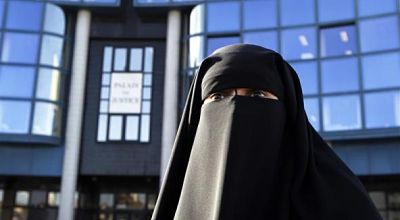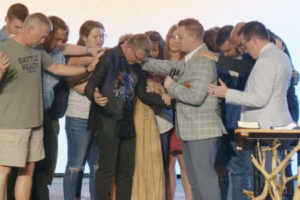Canadian judges should decide on a case-by-case basis whether women can wear the niqab, a full-face veil, while testifying in court, but a blanket rule on the issue would be “untenable,” Canada’s top court said on Thursday.
The decision, supported by four of the seven judges who heard the case at the Supreme Court of Canada, said lower courts must consider, among other things, the harm that could come if Muslim women who wear the niqab feel discouraged from reporting offenses.
But the ruling also said that where a witness’s credibility is central to the case, “the possibility of wrongful conviction must weigh heavily in the balance.” Judges must also consider the sincerity of a witness’s religious beliefs.
The court dismissed an appeal from a woman, known only by the initials N.S., who accused an uncle and a cousin of sexual assault and wished to testify wearing a niqab. A preliminary inquiry judge ordered her to remove the veil when she testified, and appeals pushed the case to the Supreme Court.
The case turns in part on the value of facial expressions in court. Government lawyers argued that facial cues can reveal deception and are thus important when cross-examining witnesses. N.S. argued that untrained people cannot detect deception using facial expressions, and that in any case, a niqab does not obscure the wearer’s eyes or tone of voice.
The Canadian court’s case-by-case approach stands in contrast to France’s broad ban on full-face veils in public places. But a similar law would not be without precedent.
Face coverings are already banned at Canadian citizenship ceremonies and in 2010, Quebec’s provincial government put forward legislation that would have given government workers broad discretion to refuse service to people whose faces are covered.
The bill died when the Liberal government was voted out of office.
Two judges concurred with the judgment on dismissing the appeal, but they argued for “a clear rule that niqabs may not be worn at any stage of the criminal trial” in the interests of openness and religious neutrality.
A third judge, Justice Rosalie Silberman Abella, dissented. She argued that unless a witness’s face is directly relevant – for example, when her identity is in question – she should not be required to remove her niqab.
The case is R. v. N.S (33989).
Reporting by Allison Martell; Editing by Janet Guttsman,Peter Galloway and Vicki Allen.
© Thomson Reuters 2012 All rights reserved.
See an error in this article?
To contact us or to submit an article





















